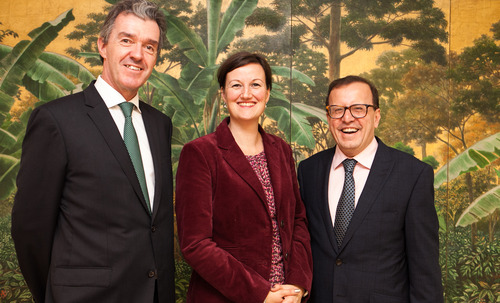Citing systemic sustainability issues, three huge players in the commodity coffee world have formed an alliance to develop “farmer-centric” approaches for the sector’s long-term health.
The International Coffee Organization, the 4C Association and the Sustainable Trade Initiative (IDH) suggest it is the biggest public/private partnership to date in the international coffee industry.
With its intergovernmental representation historical oversight of the International Coffee Agreement, the London-based ICO represents the public branch of the partnership, while “entry-level” certifier 4C, based in Bonn, Germany, represents the private branch. IDH, based in The Netherlands, is a facilitator of large-scale public/private partnerships, as well as a provider of targeted producer support programs. The group is behind the Sustainable Coffee Program, and its partnerships have included some of the world’s biggest food, textiles and certification brands.
Interesting here is not that these three groups have decided to collaborate — each has a vested interest in the long-term productivity of the sector — but that they have announced their intention to take a farmer-focused approach. The groups say they will immediately begin preparing a “roadmap for facilitating dialogue needed between key coffee stakeholders in order to identify priority needs of coffee farming communities and to develop funding sources and action plans.”
The overarching goal, they say, is to cost-efficiently scale existing sustainability initiatives and “fill gaps towards collective impact in the coffee sector.”
“This alliance builds on the enormous potential that public-private cooperation has to promote economic growth, reduce inequalities and improve living standards in coffee producing countries,” the groups jointly announced this week. “Central to its development is a strategic framework for collaboration and action among key public and private coffee stakeholders at a national and international level.”
A report from the Faitrade Foundation suggested that recent large- and small-scale PPPs have under-represented or even ignored input from smallholder farmers, stressing the need for deeper understanding of the farm-level issues that affect stakeholders throughout the supply chain. We’ll closely follow this very macro-level PPP is it develops.
Nick Brown
Nick Brown is the editor of Daily Coffee News by Roast Magazine.
Comment
1 Comment
Comments are closed.







History shows that these megaprojects come with great fanfare and disappear over time when no one is looking any longer. Just look at programs from the Millennium Development Goals to Starbucks abandoned well building program in Ethiopia. As Shakespeare said, this will amount to “sound and fury signifying nothing.” A lot of very nice people will be involved and be very offended when I challenge what they will ultimately produce, but at the end of the day nothing will change at the farm level because the industry, for all its good words and good intentions, will not change its underlying structure and treat farmers like real partners. They have been and will probably always be not much more than a piece of the commodity chain. The only real change that has ever happened is through fair trade (the early model, not the one that is lowering standards to increase participation by these same big boys), some aspects of direct trade when it is real not just marketing, and the few bold attempts by groups like Cooperative Coffees to change the rules of the game. For the big players, it is and will be business as usual. I don’t think I am being cynical. I am being realistic after spending 27 years(and still participating) in the industry.